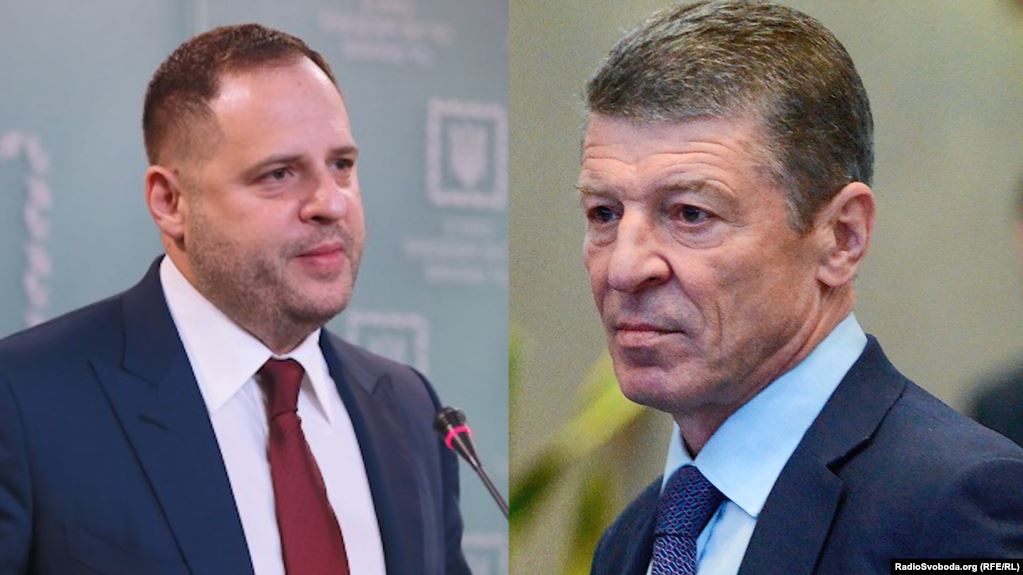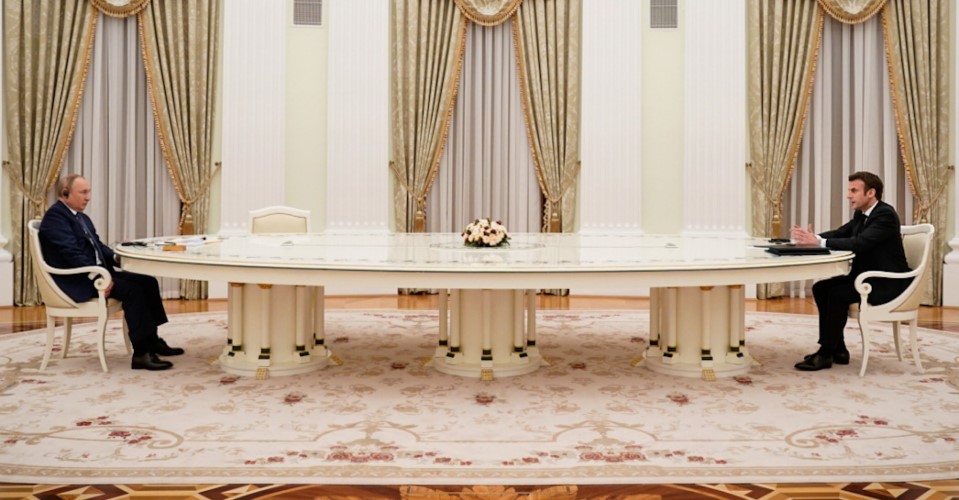A few days ago, the International Maritime Tribunal in Hamburg ruled in favor of the Ukrainian lawsuit and ruled that Russia must immediately release 24 sailors who had been captured on three Ukrainian Navy ships last year following an attack by the Russian Coast Guard. The 24 Ukrainians have since then been in Russian jail. Russia has not participated in the trial in Hamburg. The Russian leadership tried to ignore the tribunal. The Ukrainian side received applause from all over the world for its success in court. The applause was especially meant for (and rightly so) the work of Deputy Foreign Minister Olena Zerkal. Now rumors say that Russia is preparing to release the Ukrainian sailors. That would be a great pleasure and relief. But that would also show how important the international solidarity campaign and the International Maritime Law Tribunal were for the captured sailors.
The attack in the Kerch Strait was one of the many terrifying signs of the ongoing Russian escalation in Ukraine. And it was a renewed Russian test for international solidarity with Ukraine, a country which is since 2014 partially occupied by the nuclear power Russia, against which Russia is waging war because Ukraine wanted and got an association agreement with the European Union.
I use the Hamburg judge's ruling as an opportunity to repeat what I have already said on 13 May in Brussels at the Foreign Affairs Council, where we took stock of the 10 years of Eastern Partnership. Despite many problems of social and economic transformation in the countries associated with the European Union, Georgia, Moldova, and Ukraine, there is also a lot of progress.
We also have experienced a breath-taking democratic awakening in Armenia. In recent elections, it has become clear in several of these countries that citizens there clearly rely on EU support for developing democracy and the rule of law.
None of our partner countries will be able, with solely their own resources, to overcome Russian aggression or the occupation or control of entire parts of the country. As reasonable as the West's response to the beginning of the Russian occupation and the war against Ukraine was - to seek no military solution, but rely on sanctions and diplomacy – as weak this concept is currently perceived by the Ukrainians. The attack on naval ships and the Russian “gunboat diplomacy” in the Sea of Azov and Putin's new order to distribute Russian passports in the Donbas show that Russia is simply continuing its aggression and violating international law and treaties. Putin obviously feels encouraged by Germany's continued support for Nord Stream.
The simultaneous support of many western states, led by Germany and France for an unconditional return of Russia to the Parliamentary Assembly of the Council of Europe, will not bring him to give in. Why should Putin see a reason to back down when Old Europe and Germany keep on approaching the Russian President, ignoring and overruling Central and Eastern European states? On the contrary, this is exactly the division of the EU that Putin wants. I fully agree with former Foreign Minister Klimkin, who stated at the Council meeting in Brussels that the Minsk Agreements are dead if even after the decree on the distribution of Russian passports and its gunboat diplomacy in the Sea of Azov Russia will unconditionally return to the Council of Europe.
The verdict from Hamburg on the release of the sailors should be an occasion to clarify conditions for the return of the Duma delegation to the Parliamentary Assembly of the Council of Europe. Of course, I understand the urge of Russian civil society to continue to be able to appeal to the Human Rights Court in Strasbourg. But as long as Russia remains a member of the Council of Europe, this will be the case.
Germany and France should stop supporting the unconditional return of the Russian delegation to the Parliamentary Assembly of the Council of Europe. Together with the other EU member states, they should oblige the Russian Government to end the blockade of the Kerch Strait. They must reach the release of the Azov sailors and all Ukrainians unlawfully imprisoned in Russia, in occupied Crimea and in the parts in Eastern Ukraine controlled by Russia. The decree for the distribution of Russian passports in Ukraine must be withdrawn.
Moreover, there must be a new start for the withdrawal of Russian weapons and soldiers from Ukraine. It must be made clear that the occupation of Crimea is illegal and the sanctions remain in force until the occupation ends. Germany and France must not ignore the Minsk Agreements, for which people like to praise themselves in Paris and Berlin and overlook blatant breaches for the sake of their business interests. They have to do more to enforce the Minsk Agreements. This includes setting conditions for Russia's return to the Parliamentary Assembly of the Council of Europe. They would be doing something for peace and justice in Ukraine and beyond. And they would do something against the rift between East and West in the European Union.

Read more:
- Looks like 1938: how Berlin and Paris made a step towards lifting sanctions on Russia in PACE
- Russia loses battle for PACE: resolution allowing sanctions to be lifted fails vote
- Russia's attempt to return to PACE: all you need to know
- Russia takes 24 prisoners of war after attacking Ukrainian ships in Azov, televises “confessions”
- Sailors captured by Russia are POWs, Russia violates Geneva Convention, say Ukrainian officials, lawyers
- How recent PACE resolution invoking Geneva convention will help free Ukrainian sailors captured by Russia
- Russia’s return to PACE would end Council of Europe as human rights instrument – Ukraine’s ambassador to CoE
- Reforming PACE rules of procedure must not lead to a weakening of the current sanctions regime
- How PACE wants to change its rules to lift sanctions on Russia
- Russia ignores PACE resolutions to end aggression against Ukraine. So PACE prepares to lift sanctions
- Documentary “Putin’s Hostages: Ukrainian political prisoners of the Kremlin” was premiered in PACE





